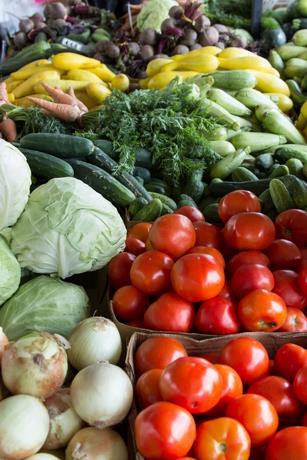The "drastic drop" on the level of nutrients present in the "black floors"a type of dark soil rich in organic content on which hundreds of millions of people depend, compromises the nutrition of the world population, revealed Monday the FAO.
"This rich treasure is threatened. Most black soils have already lost at least half of their organic carbon stocks, suffer from moderate to severe erosion, nutrient imbalances, acidification, compaction, and loss of biodiversity"said FAO Director-General Qu Dongyu. Despite the fact that black soils represent only 17% of crops globally, 66% of sunflower seeds are extracted from them, 42% of sugar beets, 30% of wheat and one in four potatoes, details the Food and Agriculture Organization of the UN (FAO) in its first report on some key areas for agriculture.
"Black soils are known as the world’s food basket and have been linked to human well-being for hundreds of years."stressed Qu.
Studies carried out in some regions rich in black soils confirm losses of between 20% and 50% of organic matter in the land and a reduction in its capacity to retain greenhouse gases, according to the FAO. On black soils, plowing and other intensive cultivation work alters the distribution of land and exposes organic matter to the open air which, when decomposed, releases carbon dioxide into the atmosphere, "contributing significantly to the increase in CO2" and to climate change. These lands, especially present in countries such as Russia, Kazakhstan, Canada, the United States, China or Argentina, are "unique soils characterized by a thick, dark-colored soil layer and a rich organic matter content" capable of producing large amounts of food, the report explains. At present, most of the black soils, 66%, are not dedicated to agriculture and are covered with grass or forests. The progressive transformation of uncultivated black soils into areas destined for intensive agricultural exploitation puts biodiversity at risk and increases air pollution, releasing carbon dioxide and limiting the capacity of soils and vegetation to absorb greenhouse gases.
"The protection of uncultivated black soils should be a global conservation priority due to their biodiversity and the large amount of organic carbon they contain, all of which are key for climate action.", emphasized the director of FAO. To guarantee the protection and sustainability of black soils, the document launches a series of recommendations to institutions and farmers. On the one hand, the agricultural sector must adopt practices such as direct seeding, fertilization with manure, controlling the use of water or working the land without digging. On the other hand, national governments must economically incentivize "sustainable management, restoration and conservation of black soils". In addition, institutions around the world must prioritize conservation and scientific research around black soils, whether or not they are present in national territories, says the FAO.
"Sustainably managing and restoring our soils is vital to address global challenges such as food insecurity, poverty or the climate crisis", claimed Qu. At present, only China has a national law to protect, conserve and promote the sustainable management of black soils, recalls the FAO, which regrets that these lands remain subject to "unsustainable management practices".
